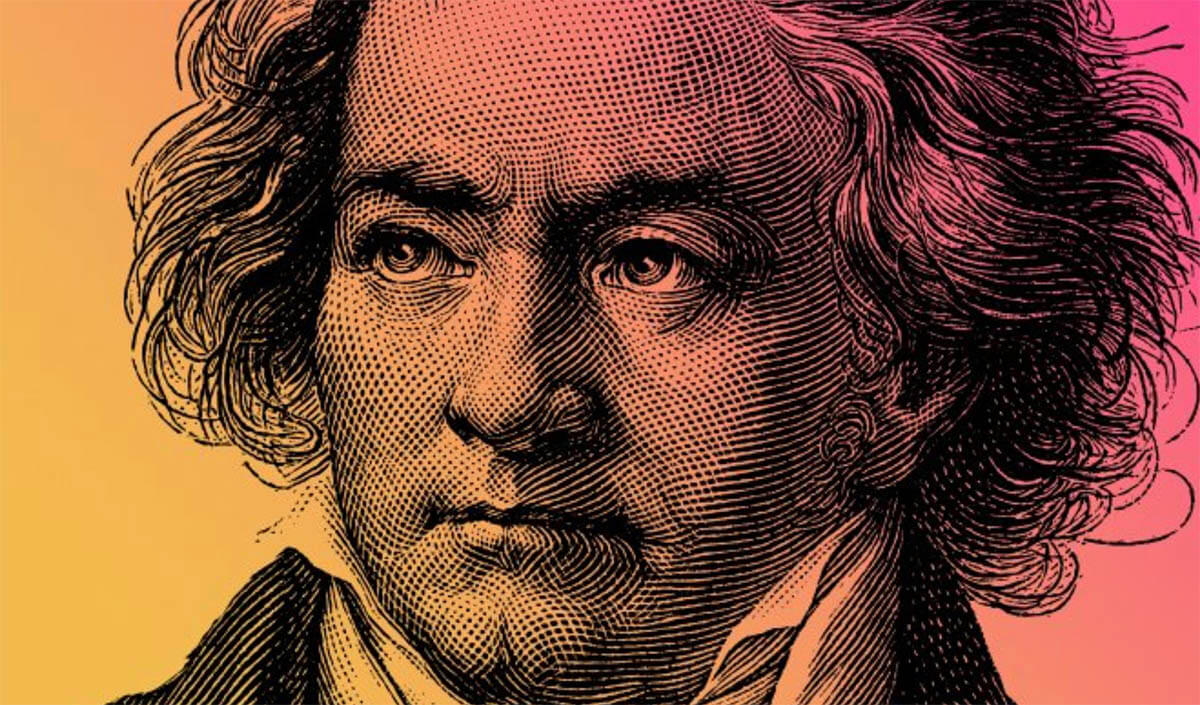Guest post by Jessica Duchen
Beethoven year is over. Well, not quite. In Germany, it’s set to carry on well into 2021, and beyond; one tribute I’m involved with in Berlin is postponed until 2022. Fortunately, to some extent every year is Beethoven year.
When the pandemic struck, I was hard at work on my book Immortal, the story of Beethoven’s (probably) real “Immortal Beloved”. It certainly kept me busy during lockdown, and I often thanked heaven that I had Beethoven, of all composers, for company. If there had to be a major anniversary during this grim year, how lucky it was his. I don’t know any other composer who “gives” quite so much to his listeners and, especially, his players. Sit at your piano and practise Beethoven for an hour: you’ll likely come away with your energy replenished, not drained. There’s a comforting heart in his music large enough for the whole world.
Unlike other composers with anniversaries, Beethoven scarcely needs to be reassessed or re-evaluated. There is simply no getting away from the fact that this is music of genius – adulterated only occasionally, when he had to make ends meet (‘Wellington’s Victory’, anyone?) – and his works continue to influence composers even in the 21st century. Anyone who really thinks it’s a good idea to “cancel” him could light a candle now to the patron saint of lost causes, whose name I forget.
Still, if there’s been a revelation about him in 2020, it’s that his music is sometimes associated with struggle at the expense of his sheer joie de vivre. He was drawn to Schiller’s An die Freude – To Joy – from the start: the poem was published in 1785 and it seems he wanted to set it to music even in the early 1790s. Although he did not manage it until the Ninth Symphony, that doesn’t mean glimmers of its underlying spirit can’t be detected in some of his other works.
Beethoven fills his music with an intergalactic range of emotional experience. In his early works he pushed through the boundaries, sometimes within one piece; try the Piano Sonata Op. 10 No. 3 with its pitch-dark Largo, or the String Quartet Op. 18 No. 1, in which the second movement is said to evoke the tomb scene from Romeo and Juliet – and if he had never written anything else, he would still be revered for these today. At the other end of the spectrum, he was writing odes to joy all his life.
The text of An die Freude in the Ninth Symphony is an extract, heavily edited for public palatability. Read the whole poem and it’s startling, even a bit crazy: ebullience, religious ecstasy, passion, drunkenness, siblinghood, social equality and much else parade through its stanzas in a celebratory carnival. Potentially there’s even more of its spirit in the Seventh Symphony than the Ninth.
Yet, to generalise terribly, the sense of “divine play” that creates Beethoven’s celestial joy is perhaps overlooked too often. Our own preoccupations, preconceptions and insecurities mean that sometimes we sideline joy in favour of reverence to a “towering genius”, the perceived need to be “historically correct” or, heaven help us, an inclination to be “iconoclastic” to evoke a “fresh approach”. If we’re to reach the “real” Beethoven, we need to get out of his way.
Take the Diabelli Variations: it’s full of jokes from start to finish, whether the sideswipe at Don Giovanni, the quirky contrast of hammered octaves and two soft little chords – or even the notion of that daft waltz theme as the basis for such a battalion of ideas in the first place. Once I wrote programme notes for a recital including it, with ample reference to these musical jests, only for a friend who was there to call the next morning and report that not one hint of humour surfaced in the whole performance.
Writing Immortal, I wanted to uncover the human being trapped beneath two centuries of accumulated grime. Behind the hot temper, the anguish, the deafness, the chaotic lifestyle, the self-delusions (there were quite a few) and the impossible – if self-inflicted – situation he faced in attempting to adopt his nephew, I found an individual who could be kind, generous, intelligent, inquisitive, thoughtful and idealistic to an extraordinary degree; one who in his youth could be witty and spirited, and whose self-exclusion from society because of his deafness was an agonising burden.
High-minded, indeed; uncompromising, for sure, as the “Immortal Beloved” herself was to discover. And strong, resilient, overpowering, thanks to his sense of vocation. He wrote in the Heiligenstadt Testament that he felt he could not leave the world until he had brought forth all that was within him. His art kept him alive at a time when he might otherwise have ended his own life; thereafter he lived for that alone.
Sometimes we forget that genius is human: it is a phenomenon found only in human beings. What most of us can’t grasp is the degree of devotion it takes to function at such a level. That would need a chapter of its own – perhaps for the next Beethoven anniversary, in 2027.
Immortal by Jessica Duchen is out now, published by Unbound.
Jessica Duchen writes for and about music. Her work encompasses journalism, fiction, biography and opera/choral librettos. She was a music critic for The Independent from 2004 to 2016 and has written for BBC Music Magazine, The Sunday Times, The Guardian, The Observer and The JC, among others.
Her latest novel (2020), IMMORTAL, reveals the epic love story behind Beethoven’s famous ‘Immortal Beloved’ letter. Other novels include GHOST VARIATIONS, based on the bizarre discovery and Nazi propaganda conscription of Schumann’s suppressed violin concerto.






